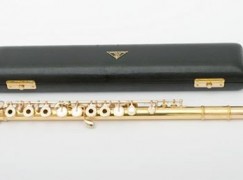190 flutes applied for audition, 50 played and none was hired
mainBarcelona’s Liceu Opera has a vacancy for principal flute.
Some 190 professionals applied from all over the world. Fifty were invited to audition this week.
None got hired.
Or their expenses paid.
That’s how rough it is out there.






Comments